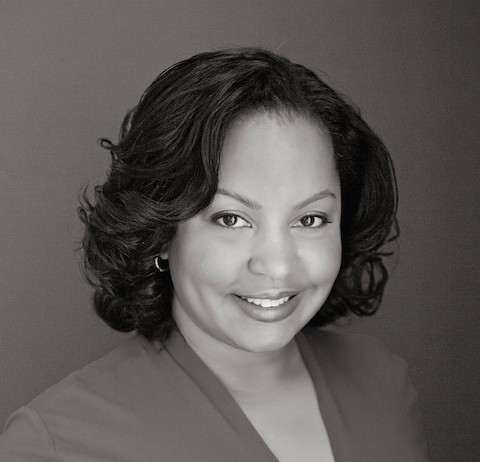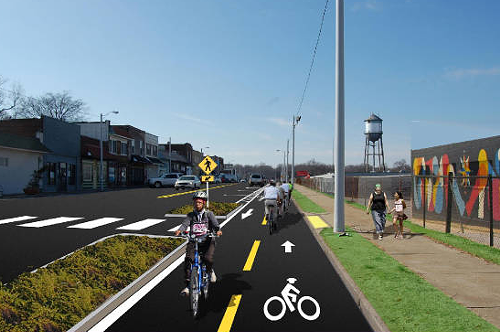I had one resolution for 2014: Do more of what makes you happy.
Beautiful in its simplicity, this resolution was at least 10 years in the making.

The problem: I was addicted to doing, accomplishing, achieving. My drug of choice: to-do lists. They were a tangible way to show progress — and I was a list addict.
Lists for work were on legal notepads: Call sources for a story; write 300 words by 2 p.m. Lists for home were written in blue ink on sheets of plain printer paper folded in half. I have been known to stop in the middle of wrangling a fitted sheet into submission to add “fold laundry” to the list, simply for the thrill of crossing it off later.
There’s psychology behind the (false) sense of control obsessive list makers derive from sifting their world into bulleted items. And there’s an entire personal productivity industry such as David Allen’s “Getting Things Done” system or one of my favorites, the pomodoro technique of timed productivity sessions.
In my 30s, I took the obsession to a new level, with lists of goals that, once accomplished, would signal my arrival in responsible adulthood. Or so I thought. On my list of “30 things to do before you turn 31”: Read one of the great classics each month (I started — and stopped — with Anna Karenina); purge the attic of 20-year-old newspaper clips from my days as a cub cops reporter in Indianapolis; master several new dishes to wow dinner guests.
But each year, when my birthday rolled around, I could only cross out a few goals. The rest were recycled for the next year, but as I approached 40, the list had no power to motivate. Instead, the sight of the lists was depressing. I saw it as a testament of my inability to GROW THE HELL UP AND DO MATURE GROWN PEOPLE STUFF.
And then, everything changed with the birth of my (first and only) niece two and a half years ago. I didn’t know you could love someone so completely that it terrified you. Suddenly I wanted nothing more than to spend hours playing peek-a-boo or letting her do stuff her mother wouldn’t, like liberate Kleenex from the tissue box, one by one.
What I wanted to do and what I thought I had to do were in constant conflict. Adding “perform Itsy Bitsy Spider ad nauseum” to my fastidious list felt indulgent. Would it be the first step on the road to slovenly loserville?
My “aha” moment came in a most 21st-century way: via Pinterest, where the inspirational quotes serve as a lazy woman’s version of Sunday mornings with Joel Osteen or Oprah’s “Live Your Best Life” tent meetings.
On this particular saying, there was no attribution. It wasn’t plastered over a treacly blue-sky background. Just seven words in a typewriter font: Do more of what makes you happy.
It was permission to make a new to-do list with just one item. I would do less of what I thought it was that adults did — tasks that were usually mundane and joyless. Instead, I would spend my time and energy with people I enjoy and on experiences that feed my soul.
Following this one rule meant that I knitted more. Nothing fancy, but my hands like the rhythm and the immediate (although poorly shaped and usually unwearable) results. I perfected a pound cake. I put years of childhood piano lessons to use and played classical music (poorly). I took my mother to Montreal and splurged on floor seats to a Cirque du Soleil show.
Sometimes being happy costs money, like when I went hiking in the Amazon with my cousin, my brother, and his girlfriend. But more often than not, happiness is free, such as karaoke night at my parents’ house. Listening to my Jamaican-born mother belt out the “Banana Boat Song” — it doesn’t get much better (or funnier) than that.
Or a recent afternoon with my darling niece. She’s in the pretend-play phase, which means she serves dinner in an overturned tambourine with a maraca-turned-spoon. On this day, we were playing bedtime. A book was my pillow, and she neglected to give me a blanket, but she told me “Sweet dreams!” as we settled onto the carpet.
Not 30 seconds later, my niece touched me on my shoulder to wake me. I opened my eyes. Her smiling face was just inches from mine. “Good morning, sunshine!” she said in her sweet, singsong voice. Before she dished oatmeal from a stacking toy cup, my niece asked, “Auntie Wendi, do you need a bib?”
That is happiness.
So for 2015, I have just one resolution: Do even more of what makes me happy.
 Greg Cravens
Greg Cravens 




 Greg Cravens
Greg Cravens